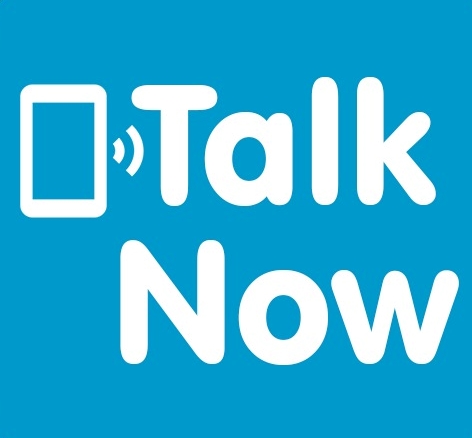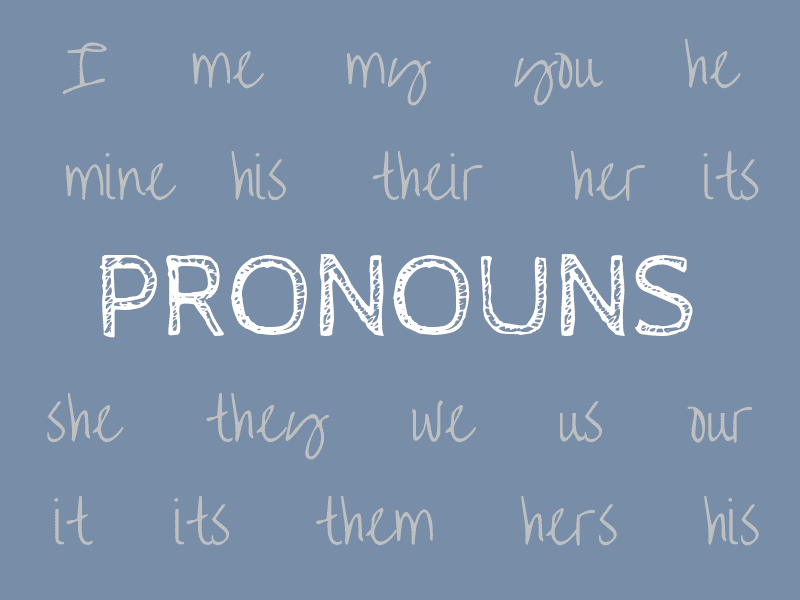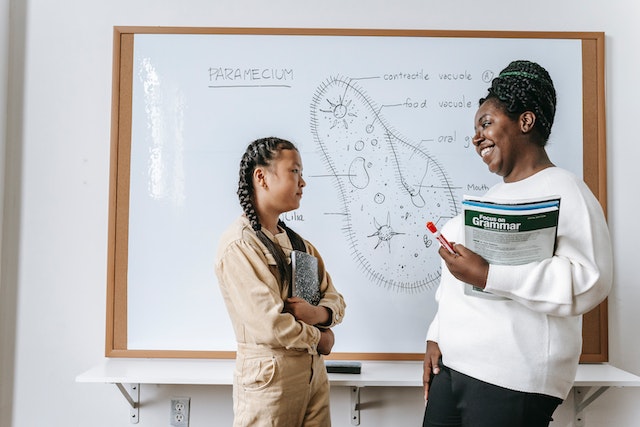A pronoun is an essential part of learning English Grammar. It helps you to climb the ladder of grammar in order to reach the peak of learning the English language and achieve fluency. Learning English is not all about reading and writing, but there are many other aspects that come into place in order to achieve fluency. It is important to get a stronghold on every aspect.
The words which take the place of a noun are called a pronoun. For example words like he, you, ours, some, each, themselves, etc. A pronoun can be used instead of a noun. In case we didn’t have pronouns, we would have to repeat a whole lot of nouns. Let us now know and understand what pronouns are and how they work.
MEANING
A pronoun is a word that takes the place of or it represents a noun.
The pronoun looks relatively small but it is a small word having a big job. The place of a whole noun phrase can be taken by a pronoun. In order to avoid repetition of words and use fewer words, we can use pronouns.
EXAMPLES
- Do you like the teacher? I don’t like the teacher. The teacher is not friendly.
In the given sentence, the word ‘teacher’ is repeated thrice. We can make the use of a pronoun and make the sentence much easier and more understandable. The same sentence can be written as;
- Do you like the teacher? I don’t like her. She’s not friendly.
In this sentence, we have replaced the word ‘teacher’ with two pronouns: ‘her’ and ‘she’. With this, we don’t have to repeat the word ‘teacher’ a number of times. In this way, we can use pronouns to avoid repetition and use fewer words.
In the following sentence “Please ask Vivek to complete the assignment”, we can replace ‘the assignment’ with ‘it’ and ‘Vivek’ with ‘him’, just as you see in the below table:
| Please ask | Vivek | To complete | The assignment. |
| Please ask | him | To complete | it. |
While conversing, the speakers usually use pronouns in order to address each other. I talk to you. You talk to me. When we speak about a person, we don’t keep repeating their name. We say he/she or him or her.
POWER OF PRONOUNS
A pronoun has the power to represent the person or the thing we are talking about. But for this, we must know which person or the thing we are talking about. Very often, we do not start a discourse with a pronoun. In order to avoid repeating the noun, we start with it but later we move ahead by using a pronoun. A long noun phrase can also be rephrased by a pronoun.
Let us take a look at some examples of a pronoun:
| Noun (phrase) | Pronoun |
| The bike | it |
| Mary | she |
| The tall man with biceps | he |
| running | it |
| Learning French | it |
| My child and I | we |
There are various kinds of pronouns, but remember that all of them have the same job, that is to represent a noun.
TYPES OF PRONOUNS
There are total 9 types of Pronouns:
1. Personal Pronouns
Personal pronouns are the types of pronouns which represent specific, particular people or things. They are used depending on numbers (singular or plural), the person (1st, 2nd, or 3rd), gender (male, female, neuter), and case (subject or object).
2. Relative Pronouns
A Relative Pronoun is related to the word that is modified by its relative clause. The five very basic relative pronouns are who, whom, whose, which, that.
3. Indefinite Pronouns
An Indefinite Pronoun is all about not referring to any specific person, thing, or amount. This kind of Pronoun refers to something vague and ‘not definite’.
4. Reflexive Pronouns
A Reflexive Pronoun is used when referring back to the subject of a particular sentence or even a clause. Reflexive pronouns end with ‘-self’ which is singular or even with ‘selves’ which is plural.
5. Reciprocal Pronouns
Reciprocal Pronouns are mostly used when each of the two or more subjects acts in the same manner towards the subject. In reciprocal pronouns, the action gets ‘reciprocated’, as the name of the pronoun suggests.
6. Interrogative Pronouns
Interrogative pronouns are used to ask questions and those sentences always end with a question mark. This type of pronoun indicates something which we don’t know. The four main interrogative pronouns are who, whom, what and which.
7. Possessive Pronouns
A possessive pronoun is used to refer to a specific person/people or it can also refer to things or things that belong to a person/people and at times even to animal/animals or even thing/things.
8. Demonstrative Pronouns
Demonstrative pronouns are used to show, indicate, represent or point towards a thing or things which include near in distance/time and far in distance/time.
9. Emphatic Pronouns
As suggested by the name, “Emphatic Pronouns” are used to create emphasis. Words like myself, yourself, himself, herself, yourselves, ourselves, and themselves are considered Emphatic Pronouns.
Quiz on Pronouns














